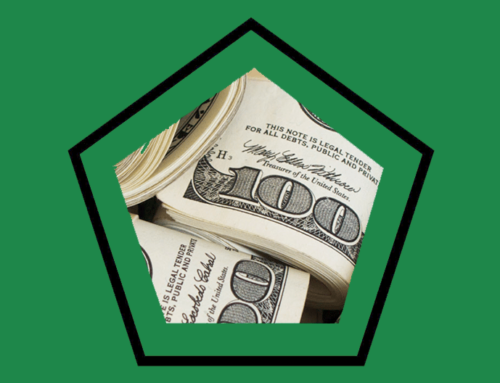The banking industry is pressing Congress to convert millions of emergency small business loans into grants with minimal paperwork — an idea that some lawmakers and watchdog groups warn could expose the government to massive fraud.
The banks are pushing the issue because businesses that took the so-called Paycheck Protection Program loans are beginning to file applications to have the loans forgiven, a time-consuming and confusing process for both lenders and borrowers. The $670 billion program stipulates that the loans can be forgiven if employers kept workers on payroll, a key incentive for businesses to participate.
A bill that would stop just short of automatic forgiveness for loans of $150,000 and under is gaining bipartisan support. Treasury Secretary Steven Mnuchin gave the idea a big boost on Friday, when he told lawmakers they should consider automatic forgiveness for smaller loans.
But critics argue there’s not enough information available to vet the proposal and that it could heighten the risk of scams.
“Easing PPP loan forgiveness should not be on the table until Congress has the data we need to see whether this program is actually working to save jobs,” Rep. Katie Porter (D-Calif.), one of the sharpest critics of the government’s oversight of the massive coronavirus relief packages, told POLITICO.
Banks have taken the lead on the lobbying push to overhaul this phase of the Paycheck Protection Program because Congress made them conduits for delivering the small business aid, which was intended to avert mass layoffs during the pandemic. Unless Congress intervenes to streamline the program in the coming weeks, they say it could create huge new headaches for businesses across the country that are already struggling to keep their doors open during the surging coronavirus outbreak.
“We’re not out of this yet,” Consumer Bankers Association General Counsel David Pommerehn said. “We need to maximize the effect of this program for all the businesses out there until we’re truly out of the pandemic and the economy’s back on track.”
A growing number of business groups are throwing their weight behind legislation by Sens. Kevin Cramer (R-N.D.) and Bob Menendez (D-N.J.) that would direct the Small Business Administration to create a one-page forgiveness form for employers borrowing $150,000 or less. It would simply require business owners to attest that they used the money as required. The intent is to spare businesses from having to fill out pages of extensive questions. Senate Banking Chair Mike Crapo (R-Idaho) has agreed to co-sponsor the bill.
Supporters of the legislation say the $150,000 threshold is a sweet spot because it would cover more than 86 percent of the 4.9 million loans issued under the program.
Lenders and other advocates of the bill have mustered a show of force.
In a letter to Congress, more than 130 trade associations urged lawmakers to pass the bill. Supporters include the U.S. Chamber of Commerce, the National Association of Realtors and the National Restaurant Association. They said expediting loan forgiveness “will save more than $7 billion and hours of paperwork.”
It could also reduce the workload for banks. The logistics of the forgiveness process — similar to that of issuing the loans — are “very time consuming” and will require “a lot of internal resources to be diverted from other areas of the bank,” said Pommerehn.
But watchdog groups say the proposal is premature because the Trump administration has not revealed which businesses received the loans under $150,000. The SBA has disclosed the identities of larger loans and only released anonymized data on the loans that would be covered by the Senate bill. The SBA gave congressional committees full access to the loan-level data.
“We should see the names of these borrowers before we talk about automatic loan forgiveness,” said Liz Hempowicz, director of public policy at the Project on Government Oversight.
Kyle Herrig, president of Accountable.US, said the bill provides “in effect, automatic forgiveness for millions of loans.”
Some lawmakers are also beginning to push back. Porter, a member of the Financial Services and Oversight committees, cited the administration’s refusal to release information about the loans covered by the bill and the delay in giving the data to Congress.
“Thus, there is absolutely the potential for waste and fraud when awarding and later forgiving these loans—businesses that don’t need assistance receiving essentially free taxpayer money, but more importantly, our smallest, most vulnerable businesses being prevented from getting the help they need,” she said.
Concerns about how the money was spent have been heightened by evidence of widespread errors in loan data released so far. Bloomberg reported that data on at least a quarter of a million loans may have listed the wrong congressional district for the borrowers. More than $30 billion in loans have been returned or canceled.
Mnuchin said in the hearing Friday that if Congress eases the forgiveness process for small loans, then “we should obviously make sure there’s some fraud protection.”
Only 20 percent of banks surveyed by the Consumer Bankers Association have started accepting forgiveness applications. The SBA has not launched a system to take in the applications and lenders are awaiting more clarity on how the process will work.
Included in the Senate bill is another benefit to banks, in the form of legal protections against government enforcement actions arising from the PPP loans. It has become a significant point of contention in negotiations around the bill.
The legislation includes a “hold harmless” provision that says lenders can rely on certifications and documentation provided by borrowers without being hit with enforcement actions under federal and state laws including the False Claims Act, the Bank Secrecy Act and other statutes identified by name.
It’s a priority for banks because “of the ever-changing guidelines, rules and FAQ’s associated with the program,” said James Ballentine, executive vice president of congressional relations and political affairs at the American Bankers Association.
“You want to make sure the lender is held harmless for something that was not in existence at the time that may be in existence today,” he said. “There are very few if any programs in the history of loan programs where you’ve essentially operated off FAQ’s. It is foreign territory for the banking industry to operate in that type of environment.”
But sources familiar with the matter said Sen. Sherrod Brown (D-Ohio), the top Democrat on the Banking Committee, as well as the Treasury Department have raised alarms about the way the legal shield is drafted.
“Discussions with the Small Business Committee on the hold harmless provisions are ongoing,” a spokesperson for Brown said. “The PPP has been clumsily implemented by the administration, and Senator Brown believes we must provide small businesses with relief without undermining enforcement of key anti-money laundering, anti-fraud and other federal laws. Whatever PPP-related legislation is included in the next Coronavirus relief package must do both. “
Steve Ellis, president of Taxpayers for Common Sense, said the bill is “unnecessary.”
“The banks want some certainty,” Ellis said. “I get it They don’t want to have a ‘gotcha’ later. But I feel like this is trying to bend over backwards to make sure nobody is held to account on how this money is being administered. We’re talking about a huge federal loan program.”
The Center for Responsible Lending, which advocates for marginalized borrowers including people of color and women, is backing the bill and sees the hold harmless protections for banks as important to expediting loan forgiveness for the smallest businesses.
“What we’re trying to do is make this program accessible for the really small business owners — the business owners who don’t have accountants and lawyers on staff, the mom and pop shops who really just need this as a lifeline,” said Ashley Harrington, the group’s federal advocacy director. “They took on this loan believing it would convert to a grant and not that they would have debt to pay back over two years.”
Another potential hurdle for the bill is how it will mesh with a separate small business rescue plan circulated by Senate Small Business Chair Marco Rubio (R-Fla.). It has similar proposals for streamlining loan forgiveness and establishing legal protections for lenders.
In an interview, Cramer said he was not yet seeing major pushback against his bill because of fraud concerns and that the $150,000 threshold provided some protection.
While the legislation would cover more than 86 percent of the loans, he said it accounts for just around a quarter of the program’s dollar volume. And because employers would still have to fill out a forgiveness form, he said “the borrower is on the hook” if they break the law.
“I considered automatic,” he said. “But I do think there’s something about putting your signature on a piece of paper that causes people to pause and be less likely to commit fraud.”











Get Social